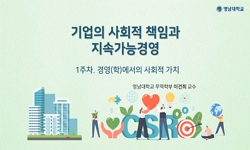한국의 낮은 출생률의 원인으로 경제사회적 요인들이 제시되었지만 급격한 저출산 추이를 온전히 설명하고 있지 못하다. 이에 저자는 저출산의 원인과 대책에 대해 국민의 의식구조적인 측...
http://chineseinput.net/에서 pinyin(병음)방식으로 중국어를 변환할 수 있습니다.
변환된 중국어를 복사하여 사용하시면 됩니다.
- 中文 을 입력하시려면 zhongwen을 입력하시고 space를누르시면됩니다.
- 北京 을 입력하시려면 beijing을 입력하시고 space를 누르시면 됩니다.

한국의 저출산 문제 해결을 위한 생명윤리적 고찰과 정책적 제언 - 생명을 홀대하는 사회에서, 생명을 환대하는 사회로 = Bioethical Reflections and Policy Suggestions for the Resolution of the Low Birth Rate Problem in South Korea – from a Society which Neglected Life to a Society which Welcomes Life
한글로보기https://www.riss.kr/link?id=A109092047
-
저자
김수정 (의료법인 성누가병원)
- 발행기관
- 학술지명
- 권호사항
-
발행연도
2024
-
작성언어
Korean
-
주제어
low birth rate ; bioethics ; familism ; unmarried birth ; sexuality education ; responsibility ; 저출산 ; 생명윤리 ; 가족주의 ; 비혼출산 ; 성교육 ; 책임
-
등재정보
KCI등재
-
자료형태
학술저널
- 발행기관 URL
-
수록면
1-34(34쪽)
- DOI식별코드
- 제공처
-
0
상세조회 -
0
다운로드
부가정보
국문 초록 (Abstract)
한국의 낮은 출생률의 원인으로 경제사회적 요인들이 제시되었지만 급격한 저출산 추이를 온전히 설명하고 있지 못하다. 이에 저자는 저출산의 원인과 대책에 대해 국민의 의식구조적인 측면에 근거하여 가정친화적인 생명윤리적 관점에서 논하고 대안을 제시한다. 첫째, 임신, 출산, 양육의 문제를 여성만의 문제가 아닌 남녀 모두가 책임지는 선택으로 인식해야 하며 이를 위해 양육비 책임법을 도입하기를 제안한다. 둘째로 모성과 부성, 아동에 대한 부정적 사회 인식을 전환하고 어머니 학교, 아버지 학교, 결혼예비학교 등을 활성화하며, 일과 가정의 양립을 위해 산전후 휴가 및 육아휴직에 대한 기업의 부담을 없애고 고용보험 미가입자도 동일한 혜택을 받도록 해야 한다. 아이에 대한 배제 문화보다는 환대 문화를 확산시키고, 자녀의 존재가 개인의 삶의 질을 향상시킨다는 사실을 알려야 한다. 셋째, 가정과 결혼에 대한 부정적 시선에서 벗어나, 가정과 결혼이 개인의 행복에 기여한다는 사실을 홍보해야 한다. 정부는 가정을 보호하고, 인위적으로 비혼 출산을 장려하는 것은 지양해야 한다. 넷째로 무책임한 성문화에는 성매개감염병, 낙태, 난임 등의 부작용이 따르므로, 상대방과 생명에 대한 인격적 책임을 지는 문화를 만들며 청소년들에게도 교육해야 한다. 다섯째는 물질중심주의와 생명에 대한 무관심의 문화로서, 대만의 생명교육운동의 선례를 참고하여 사회 전체의 생명에 대한 인식을 고양해야 한다. ‘출산생명존중위원회’를 설립할 것과 생명존중교육에 대한 법률 제정 또는 자살예방법 내 생명존중문화 사업 확장을 제안하였다. 또한 국민참여형, MZ 세대 맞춤형 홍보를 할 것을 제시하였다. 이상으로 저출산 위기는 물질주의와 돌봄의 가치와 인프라 부재, 가정과 생명에 대한 부정적인 인식과 통제 의식과 관련이 있고, 책임은 고려하지 않고 권리만을 강조하는 데서 많은 부분 기인함을 고찰하였다. 이러한 의식구조가 생명에 대한 환대와 책임감, 돌봄의 정신으로 전환되어야 한국의 저출산 문제가 근본적으로 해결될 것이다.
다국어 초록 (Multilingual Abstract)
Economic and social structural factors have been suggested as the cause of Korea’s low fertility, but they do not fully explain the rapidly declining birth rate. Accordingly, the author intends to discuss the causes and measures of low birth rate fr...
Economic and social structural factors have been suggested as the cause of Korea’s low fertility, but they do not fully explain the rapidly declining birth rate. Accordingly, the author intends to discuss the causes and measures of low birth rate from a family- friendly, bioethical perspective based on the aspect of the people’s consciousness structure. First, as the issues of pregnancy, childbirth, and parenting should be recognized as the responsibility of both genders, not just women, we propose to introduce the Child Support Act. Second, transform negative social perceptions of motherhood, fatherhood, and children through active campaigns and maternal, paternal, and premarital educa- tion. For work-family balance, the burden on companies for pre- and post-natal leave must be eliminated, and parents without employment insurance must receive the same benefits. The culture of welcoming children should be spread and inform the people that having children improves an individual’s quality of life. Third, change the view of family and marriage as outdated customs and obstacles to happiness, and promote the fact that family and marriage contribute to an individual’s happiness. The government must protect the family and avoid artificially encouraging unmarried birth. Fourth, since irresponsible sexual culture comes with side effects such as sexually transmitted diseases, abortion, and infertility, a culture of responsibility should be created. We suggest sex education that teaches responsibility and promotes welcoming of new life. Fifth, to overcome a culture of materialism and indifference to life, a reference to the preceding life education movement in Taiwan should be made in order to raise awareness of life in society. We propose to establish a Childbirth and Respect Life Committee, enact laws on respect for life education, and conduct public participation-type promotions customized for the Generation Z-ers and Millenials. In summary, the low birth rate crisis in Korea is related to materialism, lack of value and infrastructure for care, negative perceptions and sense of control over family and life, and emphasizing rights rather than responsibility. Only when this consciousness structure is transformed into care and responsibility for life, will Korea’s low birth rate problem be fundamentally solved.
동일학술지(권/호) 다른 논문
-
건강한 임상시험 참여자 보호에 관한 쟁점: 생물학적 동등성 시험을 중심으로
- (재) 국가생명윤리정책원
- 고원태
- 2024
- KCI등재
-
- (재) 국가생명윤리정책원
- 박희수
- 2024
- KCI등재
-
- (재) 국가생명윤리정책원
- 윤이레
- 2024
- KCI등재
-
- (재) 국가생명윤리정책원
- 이은영
- 2024
- KCI등재




 KCI
KCI






